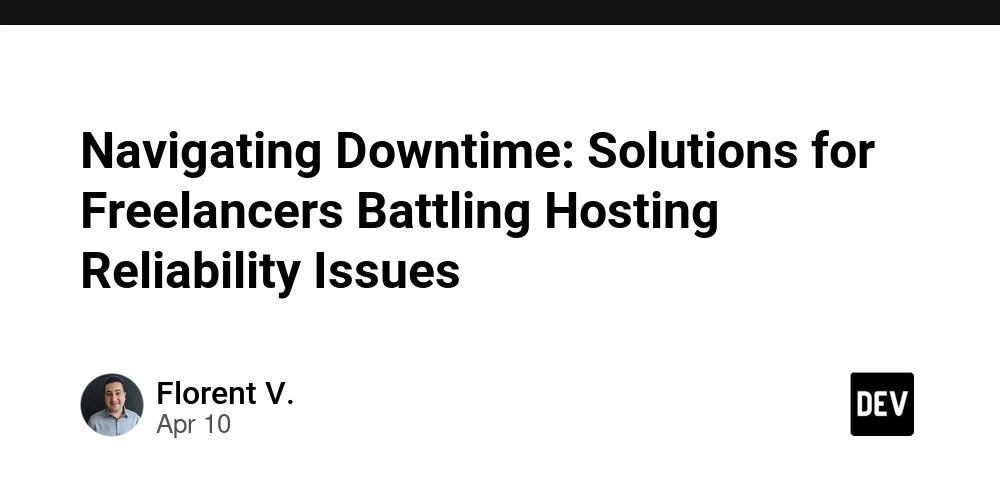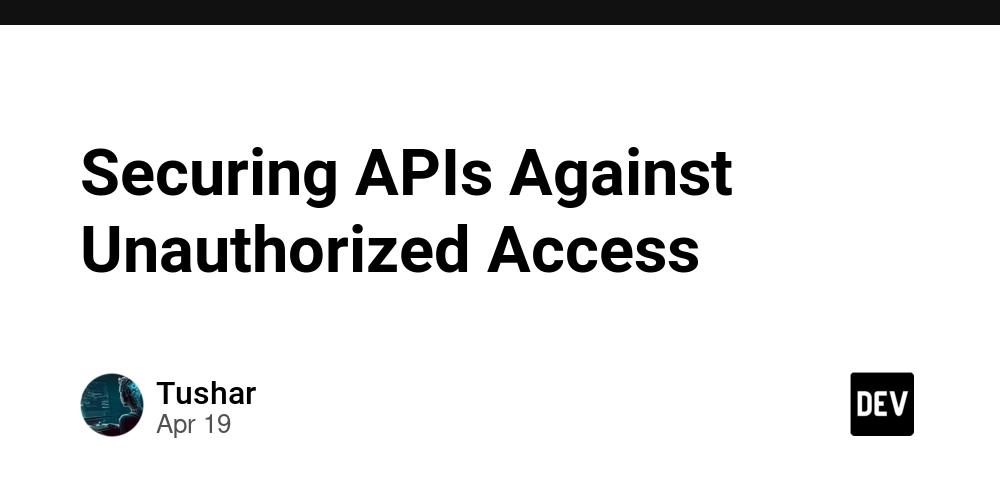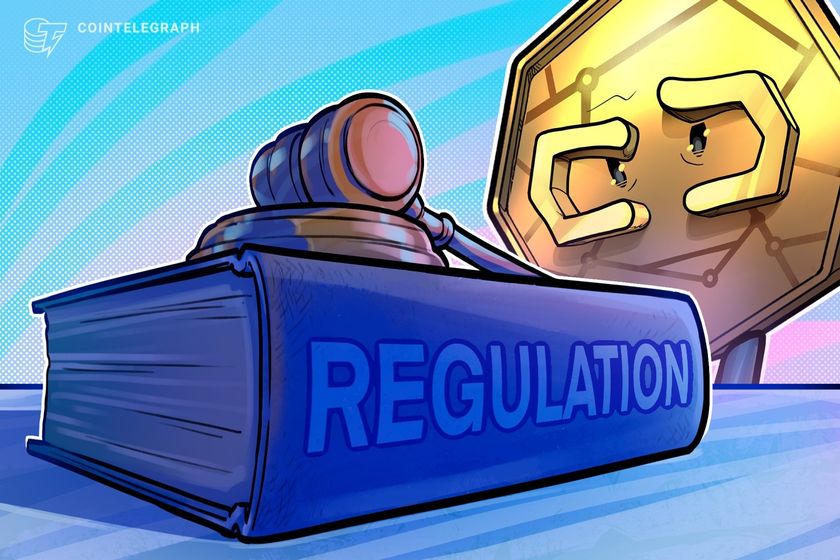Navigating Downtime: Solutions for Freelancers Battling Hosting Reliability Issues
Navigating Downtime: Solutions for Freelancers Battling Hosting Reliability Issues Every freelancer, developer, web agency, or eCommerce business owner knows the frustration of downtime. When your website is inaccessible, it doesn’t just impact your workflow; it affects your credibility and revenue. Understanding hosting reliability is crucial for maintaining a stable online presence. Here, we’ll explore practical solutions to minimize downtime and ensure your business runs smoothly. Understanding Hosting Reliability Before diving into solutions, it’s essential to grasp what hosting reliability means. It refers to the uptime and performance of your hosting service. A reliable host should offer at least 99.9% uptime, ensuring your site is accessible nearly all the time. However, many freelancers mistakenly choose hosting based solely on price, sacrificing reliability in the process. Common Mistakes to Avoid Ignoring Reviews and Reputation Always research hosting providers. Read reviews from other users, especially those in your field. A host may offer low prices, but poor reviews can indicate hidden issues. Overlooking Customer Support When downtime strikes, you want quick support. A host with 24/7 customer service can make a difference. Ensure they provide multiple ways to reach out, such as live chat, phone, and email. Choosing Shared Hosting for High-Traffic Sites If you're running an eCommerce site or a high-traffic blog, shared hosting may not be sufficient. Consider VPS or dedicated hosting for better performance and reliability. For example, Liquid Web offers robust VPS hosting solutions suitable for growing businesses looking for reliability without breaking the bank. Neglecting Security Features Downtime can often result from cyberattacks. Ensure your hosting provider offers robust security measures like DDoS protection, firewalls, and regular backups. Proactive Measures for Reliable Hosting 1. Opt for Managed Hosting Solutions Managed hosting services take care of server management, security updates, and backups, allowing you to focus on your business. This can significantly reduce the risk of downtime caused by misconfigurations or outdated software. 2. Implement a Content Delivery Network (CDN) A CDN distributes your website’s content across multiple servers worldwide. This not only speeds up load times but also enhances availability. If one server goes down, others can deliver your content, ensuring your site remains accessible. 3. Regular Backups and Monitoring Regular backups are crucial. If your site experiences downtime, you can restore it quickly rather than starting from scratch. Additionally, use monitoring tools to keep an eye on your site’s uptime. Services like Pingdom or UptimeRobot can alert you to issues before they escalate. 4. Evaluate Your Hosting Plan As your business grows, regularly assess your hosting plan. You might find that your current plan no longer meets your needs. Upgrading to a VPS or dedicated server can provide the performance boost and reliability necessary to handle increased traffic. Making the Right Choice for Hosting Needs When choosing a hosting service, consider your specific needs. Here’s a quick comparison between VPS and dedicated hosting: Feature VPS Hosting Dedicated Hosting Cost More affordable Higher price point Performance Good for moderate traffic Optimal for high traffic Resources Shared among users Entire server dedicated to you Customization Limited customization options Full control over server settings Security Moderate security measures Advanced security features If you’re unsure which option is best for you, Liquid Web provides great resources to help you decide between VPS and dedicated hosting based on your business needs. Conclusion Downtime doesn’t have to be a recurring nightmare for freelancers and web professionals. By understanding the importance of hosting reliability and implementing proactive measures, you can significantly reduce the risks associated with downtime. Choose the right hosting provider, leverage the power of managed services, and keep your website running smoothly, ensuring that you can focus on what you do best—growing your business.

Navigating Downtime: Solutions for Freelancers Battling Hosting Reliability Issues
Every freelancer, developer, web agency, or eCommerce business owner knows the frustration of downtime. When your website is inaccessible, it doesn’t just impact your workflow; it affects your credibility and revenue. Understanding hosting reliability is crucial for maintaining a stable online presence. Here, we’ll explore practical solutions to minimize downtime and ensure your business runs smoothly.
Understanding Hosting Reliability
Before diving into solutions, it’s essential to grasp what hosting reliability means. It refers to the uptime and performance of your hosting service. A reliable host should offer at least 99.9% uptime, ensuring your site is accessible nearly all the time. However, many freelancers mistakenly choose hosting based solely on price, sacrificing reliability in the process.
Common Mistakes to Avoid
Ignoring Reviews and Reputation
Always research hosting providers. Read reviews from other users, especially those in your field. A host may offer low prices, but poor reviews can indicate hidden issues.Overlooking Customer Support
When downtime strikes, you want quick support. A host with 24/7 customer service can make a difference. Ensure they provide multiple ways to reach out, such as live chat, phone, and email.Choosing Shared Hosting for High-Traffic Sites
If you're running an eCommerce site or a high-traffic blog, shared hosting may not be sufficient. Consider VPS or dedicated hosting for better performance and reliability. For example, Liquid Web offers robust VPS hosting solutions suitable for growing businesses looking for reliability without breaking the bank.Neglecting Security Features
Downtime can often result from cyberattacks. Ensure your hosting provider offers robust security measures like DDoS protection, firewalls, and regular backups.
Proactive Measures for Reliable Hosting
1. Opt for Managed Hosting Solutions
Managed hosting services take care of server management, security updates, and backups, allowing you to focus on your business. This can significantly reduce the risk of downtime caused by misconfigurations or outdated software.
2. Implement a Content Delivery Network (CDN)
A CDN distributes your website’s content across multiple servers worldwide. This not only speeds up load times but also enhances availability. If one server goes down, others can deliver your content, ensuring your site remains accessible.
3. Regular Backups and Monitoring
Regular backups are crucial. If your site experiences downtime, you can restore it quickly rather than starting from scratch. Additionally, use monitoring tools to keep an eye on your site’s uptime. Services like Pingdom or UptimeRobot can alert you to issues before they escalate.
4. Evaluate Your Hosting Plan
As your business grows, regularly assess your hosting plan. You might find that your current plan no longer meets your needs. Upgrading to a VPS or dedicated server can provide the performance boost and reliability necessary to handle increased traffic.
Making the Right Choice for Hosting Needs
When choosing a hosting service, consider your specific needs. Here’s a quick comparison between VPS and dedicated hosting:
| Feature | VPS Hosting | Dedicated Hosting |
|---|---|---|
| Cost | More affordable | Higher price point |
| Performance | Good for moderate traffic | Optimal for high traffic |
| Resources | Shared among users | Entire server dedicated to you |
| Customization | Limited customization options | Full control over server settings |
| Security | Moderate security measures | Advanced security features |
If you’re unsure which option is best for you, Liquid Web provides great resources to help you decide between VPS and dedicated hosting based on your business needs.
Conclusion
Downtime doesn’t have to be a recurring nightmare for freelancers and web professionals. By understanding the importance of hosting reliability and implementing proactive measures, you can significantly reduce the risks associated with downtime. Choose the right hosting provider, leverage the power of managed services, and keep your website running smoothly, ensuring that you can focus on what you do best—growing your business.





























![[Webinar] AI Is Already Inside Your SaaS Stack — Learn How to Prevent the Next Silent Breach](https://blogger.googleusercontent.com/img/b/R29vZ2xl/AVvXsEiOWn65wd33dg2uO99NrtKbpYLfcepwOLidQDMls0HXKlA91k6HURluRA4WXgJRAZldEe1VReMQZyyYt1PgnoAn5JPpILsWlXIzmrBSs_TBoyPwO7hZrWouBg2-O3mdeoeSGY-l9_bsZB7vbpKjTSvG93zNytjxgTaMPqo9iq9Z5pGa05CJOs9uXpwHFT4/s1600/ai-cyber.jpg?#)










































































































































![[The AI Show Episode 144]: ChatGPT’s New Memory, Shopify CEO’s Leaked “AI First” Memo, Google Cloud Next Releases, o3 and o4-mini Coming Soon & Llama 4’s Rocky Launch](https://www.marketingaiinstitute.com/hubfs/ep%20144%20cover.png)





























































































































![[FREE EBOOKS] Machine Learning Hero, AI-Assisted Programming for Web and Machine Learning & Four More Best Selling Titles](https://www.javacodegeeks.com/wp-content/uploads/2012/12/jcg-logo.jpg)








































































![Rogue Company Elite tier list of best characters [April 2025]](https://media.pocketgamer.com/artwork/na-33136-1657102075/rogue-company-ios-android-tier-cover.jpg?#)








































































_Andreas_Prott_Alamy.jpg?width=1280&auto=webp&quality=80&disable=upscale#)






























































































![What’s new in Android’s April 2025 Google System Updates [U: 4/18]](https://i0.wp.com/9to5google.com/wp-content/uploads/sites/4/2025/01/google-play-services-3.jpg?resize=1200%2C628&quality=82&strip=all&ssl=1)










![Apple Watch Series 10 Back On Sale for $299! [Lowest Price Ever]](https://www.iclarified.com/images/news/96657/96657/96657-640.jpg)
![EU Postpones Apple App Store Fines Amid Tariff Negotiations [Report]](https://www.iclarified.com/images/news/97068/97068/97068-640.jpg)
![Apple Slips to Fifth in China's Smartphone Market with 9% Decline [Report]](https://www.iclarified.com/images/news/97065/97065/97065-640.jpg)




































































































































